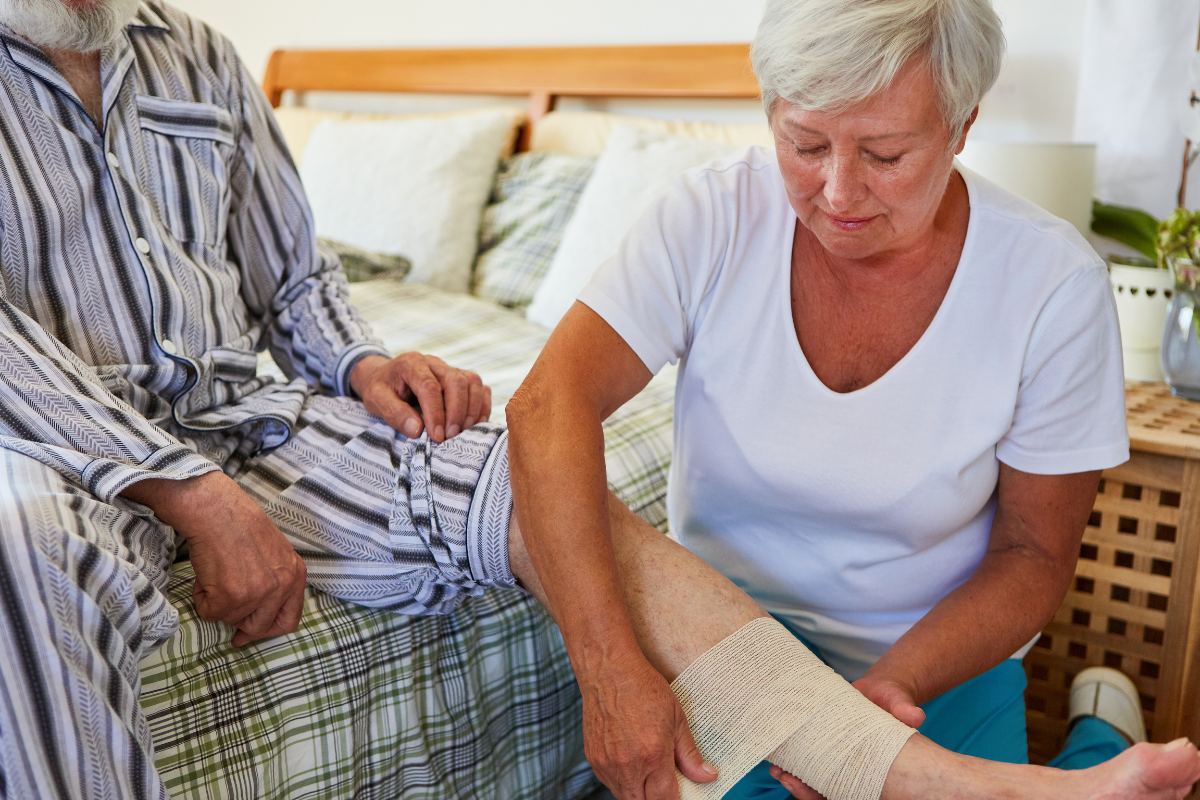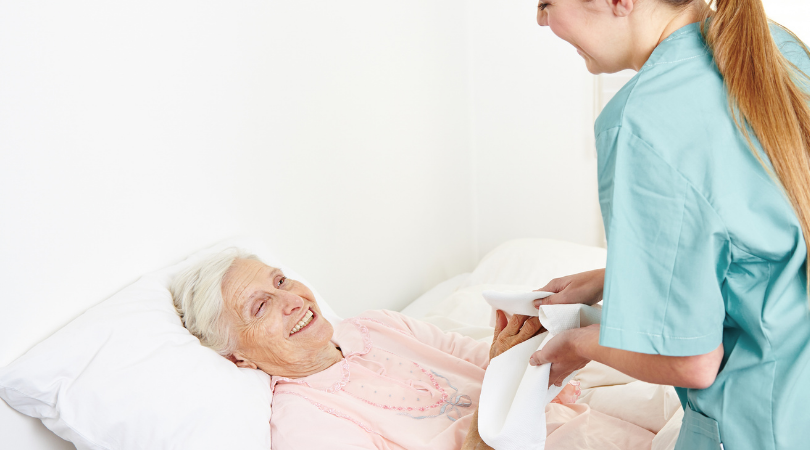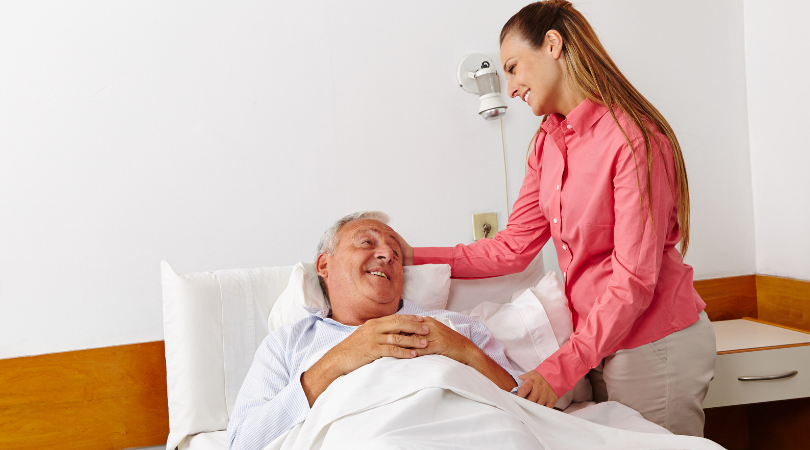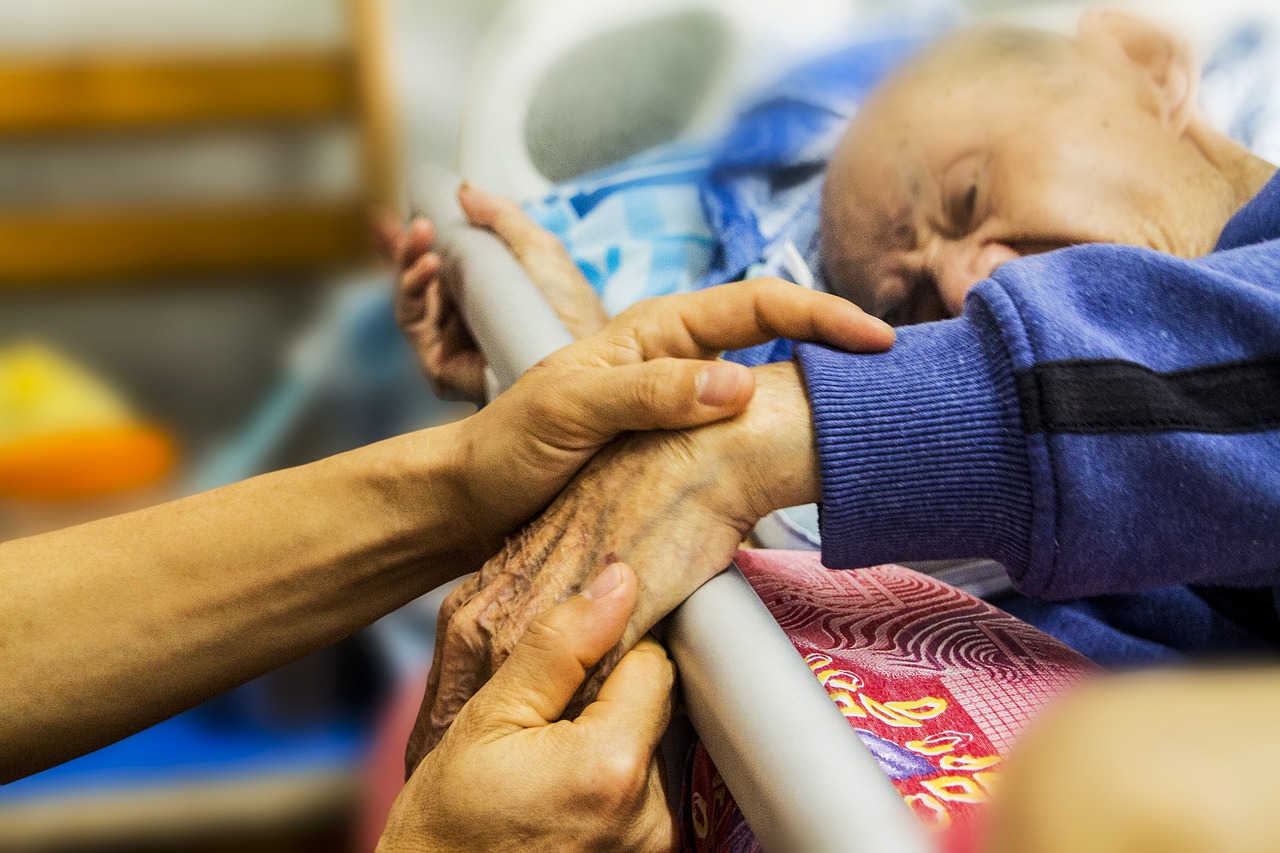How to Prevent Sores & Rashes in the Elderly

As people age, our skin becomes thinner, drier, and less elastic. All of which makes it easier to damage through pressure injuries, not being cleaned properly, and sweat – which can lead to sores and skin rash in older people.
This is especially true for people who have reduced mobility and spend much of their time in bed or sitting in a chair, making it extra important for family caregivers to take care of their loved one’s skin.

Where to Check for Sores and Rashes in Elderly People
Rashes in elderly people can appear anywhere on the body. Important places to check include folds in the skin and the creases in the armpits, elbows, knees, ankles, toes, and groin area. Contact your loved one’s doctor and care providers if you see signs of a rash.
Pressure injuries occur in spots where a person connects with the piece of furniture they are laying or sitting on. This often includes the lower back, hip and buttocks, their shoulders, back of their head and ears, their elbows, inner knee, and heels.
Pressure injuries start out looking like red or pink skin, but can progress to a wound that looks like the skin has been stripped away. As they form, the skin may be swollen and may be a different temperature compared to the surrounding skin. It can also feel different from surrounding skin, either softer or firmer.

How to Prevent Pressure Injuries and Skin Rash in Older People
Help prevent pressure injuries by carefully turning your loved one every two hours. If you see signs of pressure injuries, alert your loved one’s doctor and care providers right away. They can advise on what treatment is needed.
To prevent rash and other skin injuries, keep your loved one’s skin clean and moisturized.
When bathing them, use a gentle pH balanced soap in warm water. Wash their skin gently. To dry, pat their skin with a towel instead of rubbing. Follow up with lotion to moisturize their skin. If their skin is extra dry, you can use a protective barrier cream to help prevent tears and rashes.
Do not moisturize areas that are not prone to dryness like skin folds and the groin area. Added moisture can cause rashes and infections to develop in these areas.
If your loved one soils or wets themselves, be sure to change them quickly into clean, dry clothes. Replace protective underwear if they were using it with a fresh, dry set.
Another way to prevent rashes in elderly people is to use mild detergent when washing your loved one’s clothing and bedsheets. This can help avoid skin irritation.
Crossroads Hospice & Palliative Care helps families care for their loved ones facing serious and terminal illness. To learn more about the benefits of palliative care, please call 1-888-564-3405.
If you found this information helpful, please share it with your network and community.
Copyright © 2022 Crossroads Hospice. All rights reserved.




